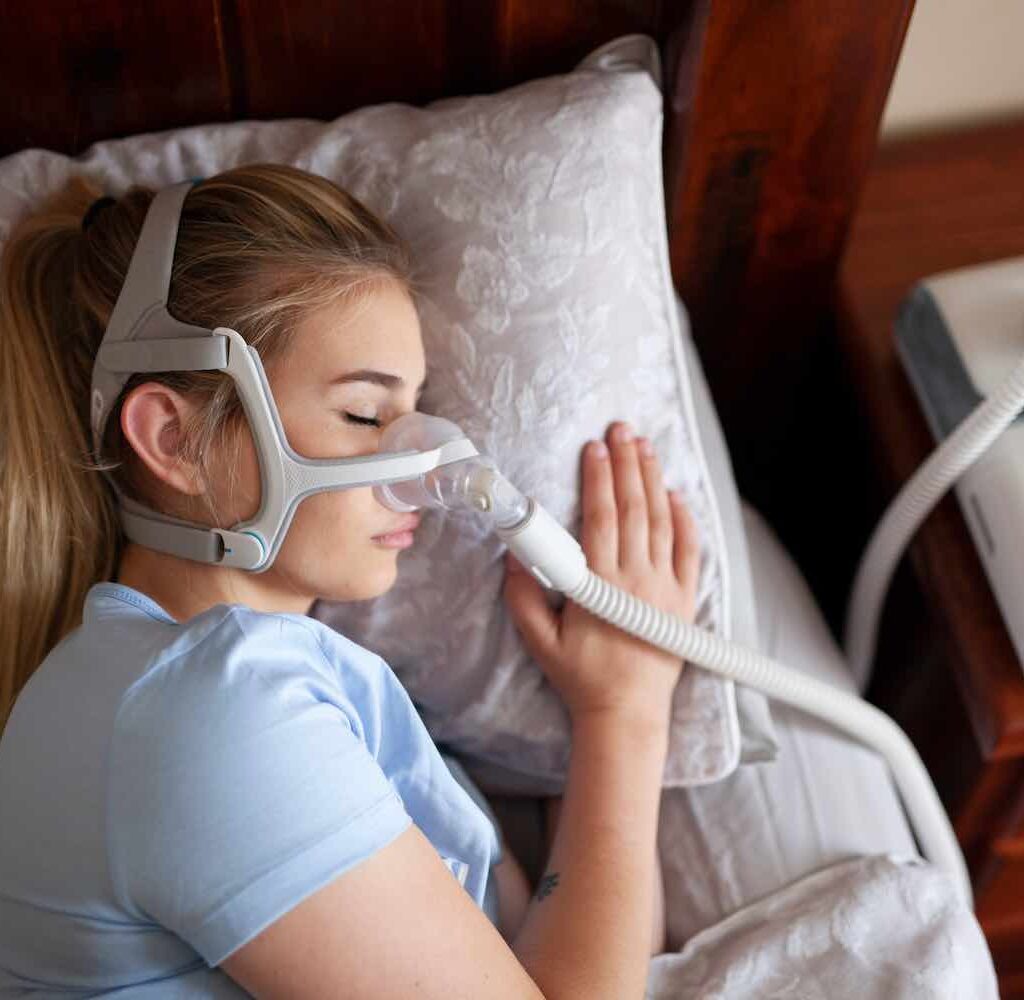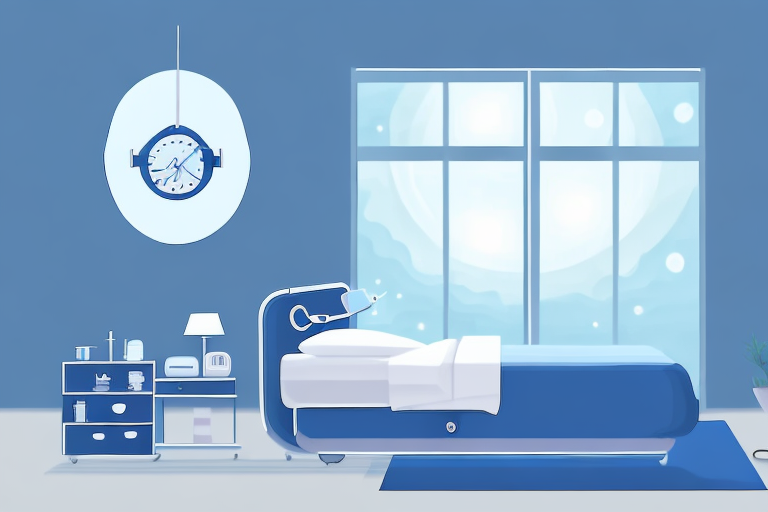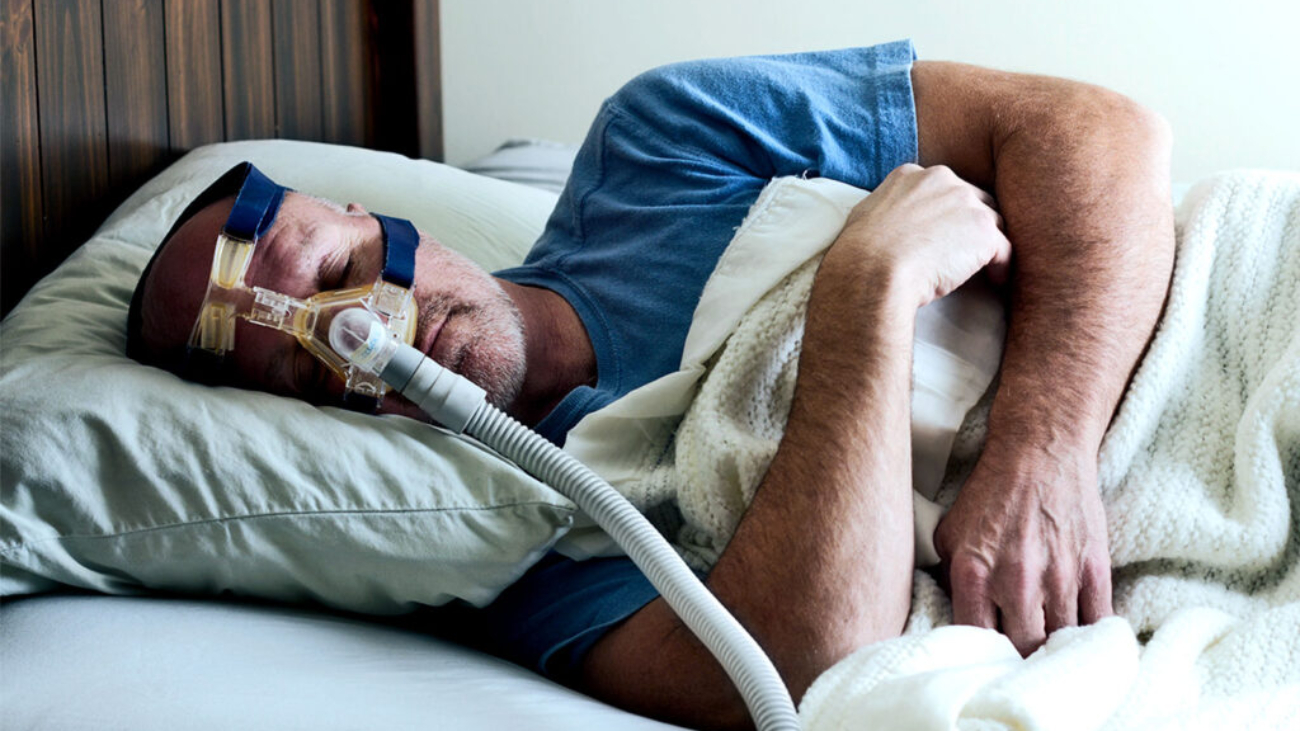Sleep apnea is a common sleep disorder that affects millions of people worldwide. It is characterized by interruptions in breathing during sleep, leading to poor sleep quality and potential health risks. Understanding sleep apnea and its impact on our overall well-being is crucial for finding effective solutions. One such solution is the use of a CPAP machine, which has proven to be highly beneficial in improving sleep and health. In this article, we will explore the science behind sleep apnea, the different types of CPAP machines available, and the direct and long-term benefits of using them.
Understanding Sleep Apnea
Sleep apnea is a disorder that occurs when the muscles in the throat intermittently relax and block the airway during sleep. This obstruction leads to pauses in breathing, causing a drop in oxygen levels in the body. These pauses can last for a few seconds to a few minutes and can occur multiple times throughout the night. The two main types of sleep apnea are obstructive sleep apnea (OSA) and central sleep apnea (CSA).
The Science Behind Sleep Apnea
In OSA, the most common type of sleep apnea, the airway becomes narrowed or blocked due to relaxed throat muscles, the tongue falling back, or excess tissue in the throat. This obstruction prevents the appropriate amount of air from reaching the lungs, resulting in disrupted breathing patterns. CSA, on the other hand, occurs when the brain fails to send proper signals to the muscles that control breathing. This disruption in the respiratory system can have serious consequences for our health.

Furthermore, the prevalence of sleep apnea is higher in certain populations, such as individuals who are overweight, male, or over the age of 40. Genetics may also play a role in predisposing some individuals to this condition. Additionally, lifestyle factors like smoking, alcohol consumption, and sedative use can contribute to the development or worsening of sleep apnea. Understanding these risk factors can help individuals take proactive steps to manage their condition and improve their overall health.
Common Symptoms and Risks of Sleep Apnea
People with sleep apnea may experience a range of symptoms, including loud snoring, excessive daytime sleepiness, morning headaches, restless sleep, and difficulty concentrating. If left untreated, sleep apnea can lead to various health risks, such as high blood pressure, heart disease, stroke, and diabetes. It is crucial to seek medical attention if you suspect you may have sleep apnea.
Introduction to CPAP Machines
A continuous positive airway pressure (CPAP) machine is a medical device commonly used to treat sleep apnea. It works by delivering a constant flow of air pressure through a mask, which helps keep the airway open during sleep. CPAP machines have become the gold standard in sleep apnea treatment and have improved the lives of countless individuals.
Individuals with sleep apnea often experience pauses in breathing or shallow breathing during sleep, leading to poor sleep quality and daytime fatigue. CPAP therapy helps alleviate these symptoms by providing a steady flow of pressurized air, preventing airway collapse and promoting uninterrupted breathing throughout the night. By ensuring adequate oxygen intake, CPAP machines can significantly improve the quality of sleep and overall well-being for individuals with sleep apnea.
How Does a CPAP Machine Work?
A CPAP machine consists of three main components: a motor, a humidifier, and a mask. The motor generates a steady stream of air at a prescribed pressure, while the humidifier moisturizes the air to prevent dryness and irritation. The mask, which can be nasal or full-face, is worn over the nose or nose and mouth and directs the pressurized air into the airway, preventing its collapse.
CPAP machines are designed to be user-friendly, with adjustable settings to suit individual comfort levels. Some models come with features such as ramp settings, which allow users to start with lower pressures that gradually increase to the prescribed level, making it easier to acclimate to the therapy. Additionally, modern CPAP machines are equipped with quiet motors and advanced algorithms that monitor breathing patterns to ensure optimal air pressure delivery throughout the night.
Different Types of CPAP Machines
There are various types of CPAP machines available, each with its own unique features. Standard CPAP machines deliver a constant pressure throughout the night, while auto-adjusting CPAP machines automatically adjust the pressure based on the individual’s needs. Bi-level positive airway pressure (BiPAP) machines provide different pressure levels during inhalation and exhalation, offering greater comfort for some users. Choosing the right type of CPAP machine depends on the severity of sleep apnea and the patient’s preferences.
For individuals who travel frequently or prefer a more compact option, there are also travel-sized CPAP machines available that offer portability without compromising on performance. These devices are lightweight, easy to pack, and can be powered through various sources, making them ideal for users on the go. Whether at home or on the road, CPAP machines play a crucial role in managing sleep apnea and improving the quality of sleep for those in need.

The Direct Benefits of Using a CPAP Machine
Using a CPAP machine can have immediate and noticeable benefits, dramatically improving sleep quality and overall well-being.
CPAP machines, or Continuous Positive Airway Pressure machines, are a common treatment for obstructive sleep apnea, a condition characterized by pauses in breathing during sleep. These machines work by delivering a constant flow of air through a mask worn over the nose or mouth, keeping the airway open and allowing for uninterrupted breathing throughout the night.
Improved Sleep Quality
By keeping the airway open and allowing uninterrupted breathing, a CPAP machine promotes deep, restorative sleep. This leads to improved sleep quality and a reduction in the number of awakenings throughout the night. With consistent use, individuals often report feeling more refreshed and energized upon waking.
Furthermore, the improved sleep quality associated with CPAP therapy can have far-reaching effects on overall health. Adequate, restful sleep is essential for cognitive function, mood regulation, and immune system support. By addressing sleep apnea with a CPAP machine, individuals can experience a significant improvement in their overall well-being.
Enhanced Daytime Alertness
One of the most noticeable benefits of using a CPAP machine is the significant improvement in daytime alertness. By ensuring a steady supply of oxygen during the night, the CPAP machine helps combat daytime sleepiness, allowing individuals to stay awake and focused throughout the day. This is especially important for those who perform tasks that require high levels of concentration and vigilance.
Moreover, the enhanced daytime alertness resulting from CPAP therapy can lead to increased productivity and improved performance in daily activities. Whether at work, school, or engaging in hobbies and social interactions, individuals who use a CPAP machine may find themselves more engaged and present due to the restorative effects of quality sleep.
Reduction in Snoring
Snoring is a common symptom of sleep apnea and can significantly disrupt both the individual’s and their partner’s sleep. A CPAP machine helps reduce or eliminate snoring by keeping the airway open and preventing the vibrations that cause snoring sounds. This not only leads to quieter nights but also improves the quality of sleep for both the user and their bed partner.
Additionally, reducing snoring through CPAP therapy can have positive effects on relationships and overall well-being. Improved sleep for both partners can lead to a more harmonious and restful night, fostering a sense of closeness and connection. By addressing snoring with a CPAP machine, individuals can not only improve their own health but also enhance the quality of sleep for their loved ones.

Long-Term Health Benefits of CPAP Therapy
In addition to the immediate benefits, consistent and long-term use of a CPAP machine has been proven to have several positive effects on overall health.
One of the key long-term health benefits of CPAP therapy is the significant reduction in blood pressure levels. High blood pressure is a common comorbidity associated with sleep apnea. The recurring interruptions in breathing during sleep can cause spikes in blood pressure, putting strain on the cardiovascular system. However, by effectively treating sleep apnea with a CPAP machine, individuals can experience a remarkable decrease in blood pressure, lowering their risk of heart disease and stroke.
Moreover, regular use of a CPAP machine can greatly decrease the risk of heart disease. Untreated sleep apnea is associated with an increased risk of developing heart disease. The constant stress on the cardiovascular system due to the interrupted breathing patterns can lead to the accumulation of plaque in the arteries, increasing the risk of heart attacks and other cardiovascular complications. However, by ensuring proper oxygenation during sleep, CPAP therapy significantly decreases this risk, promoting a healthier heart.
Another crucial benefit of CPAP therapy is its positive impact on managing diabetes. There is a strong connection between sleep apnea and diabetes, as both conditions often coexist. Sleep apnea can contribute to insulin resistance and glucose intolerance, making it more challenging for individuals with diabetes to manage their blood sugar levels. However, by treating sleep apnea with a CPAP machine, the respiratory system is optimized, leading to better glycemic control and improved diabetes management. This not only helps individuals with diabetes maintain stable blood sugar levels but also reduces the risk of diabetes-related complications.
Overcoming Challenges of Using a CPAP Machine
While the benefits of using a CPAP machine are undeniable, some individuals may experience challenges when first starting the therapy. However, with proper guidance and dedication, these challenges can be overcome, allowing individuals to reap the rewards of restful sleep and improved health.
Dealing with Initial Discomfort
Wearing a CPAP mask and adjusting to the sensation of continuous airflow can be initially uncomfortable for some individuals. However, with patience and practice, most people quickly adapt to the therapy. It is essential to work closely with healthcare providers to find the right mask fit and address any concerns or discomfort that may arise during the adjustment period.
Maintaining Your CPAP Machine
Regular maintenance of your CPAP machine is crucial for its proper functioning and longevity. This includes daily cleaning of the mask and tubing, regular replacement of filters, and periodic inspection of the machine and accessories. By following the manufacturer’s guidelines and keeping your CPAP equipment in optimal condition, you can ensure effective therapy and a longer lifespan for your machine.
In conclusion, using a CPAP machine for the treatment of sleep apnea offers a multitude of benefits that extend beyond improved sleep quality. By addressing the underlying causes of sleep apnea and ensuring a steady flow of oxygen throughout the night, CPAP therapy helps minimize health risks, enhance daytime well-being, and improve overall quality of life. If you suspect you have sleep apnea, consult with a healthcare professional to explore the benefits of using a CPAP machine and take the first steps towards better sleep and health.
More to read: Understanding CPAP Machines and How They Work and Why They’re Essential

